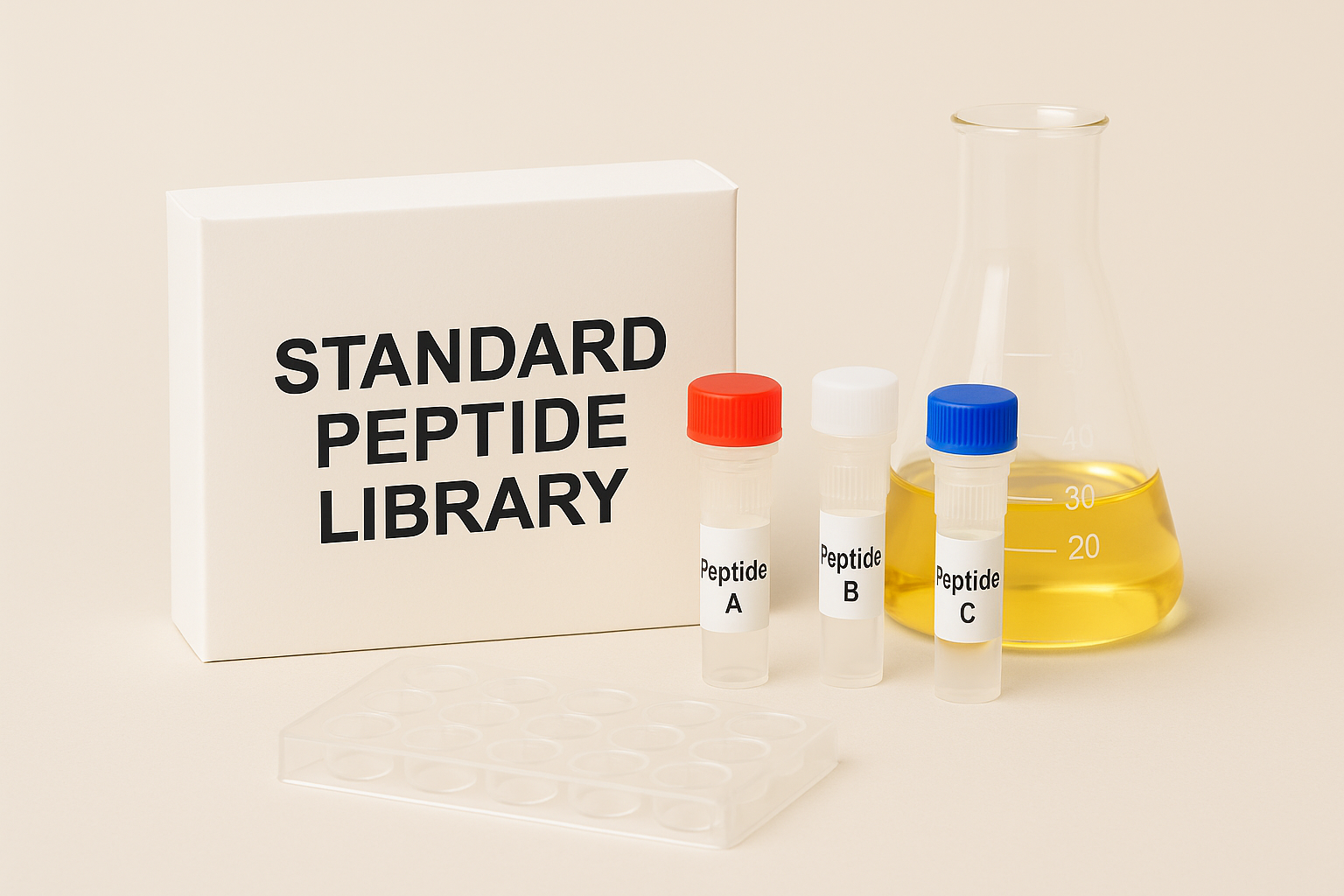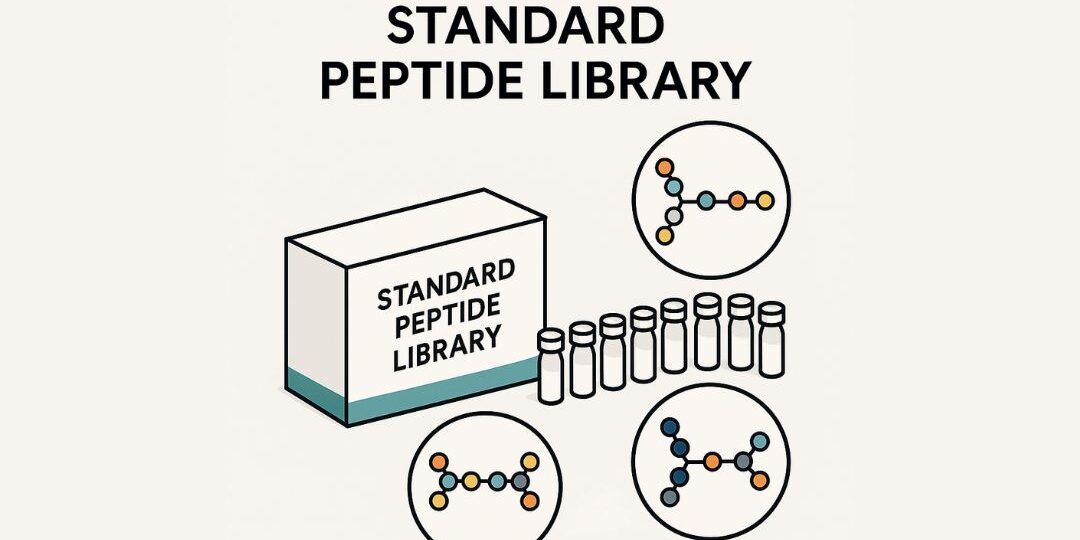Science thrives on precision, consistency, and the ability to repeat results. In biological and analytical research, even the smallest error can change how we understand complex systems like proteins, enzymes, or metabolites. This is where tools like the standard peptide library become invaluable.
A standard peptide library provides researchers with a dependable set of reference peptides that can be used for accurate identification, quantification, and validation in experiments involving proteomics and mass spectrometry. In simple terms, it’s a scientific foundation that makes sure your data is not only correct — but also trusted.
What Exactly Is a Standard Peptide Library?
A standard peptide library is a curated collection of synthetic peptides, each with a precisely known amino acid sequence and purity level. These peptides act as verified reference standards, helping scientists compare and interpret experimental data more accurately.
Think of it as a “control sample” or benchmark — something that allows you to ensure your analytical instruments and workflows are performing correctly. These libraries often include:
-
Unlabeled peptides for qualitative identification
-
Isotope-labeled peptides for quantitative comparison
-
Custom peptide sets representing specific proteins, biomarkers, or metabolic pathways
By using these well-characterized peptides, researchers can calibrate their instruments, validate methods, and ensure reproducibility in results a must-have for any modern scientific study.
The Science Behind Peptide Libraries
Peptides are short chains of amino acids, often derived from proteins. In mass spectrometry-based proteomics, proteins are digested into smaller peptides for easier analysis. These fragments serve as “fingerprints,” revealing a protein’s identity, quantity, and function.
However, analyzing complex biological samples without reliable standards can be difficult. Natural samples vary greatly, and instrument performance can shift over time. A standard peptide library solves this by providing a stable, reproducible reference — ensuring consistency across different studies, labs, or instruments.
How Standard Peptide Libraries Are Created
Building a standard peptide library is a multi-step process that blends chemistry with rigorous quality control.
-
Selection of Peptides
Scientists first identify biologically relevant or analytically robust peptides. The goal is to include sequences that represent key proteins, pathways, or analytical challenges. -
Chemical Synthesis
Using solid-phase peptide synthesis (SPPS), peptides are built one amino acid at a time. This process ensures purity, control, and scalability. -
Purification and Characterization
Each peptide is purified using high-performance liquid chromatography (HPLC) and validated through techniques like mass spectrometry and NMR spectroscopy. -
Quantification and Stability Testing
Accurate concentrations are determined through calibration with certified reference materials. Stability studies ensure long shelf life and consistency under storage conditions.
The result is a precisely defined collection of peptides that can be trusted for calibration, validation, and comparison in various analytical workflows.
Why Standard Peptide Libraries Are Essential in Research
1. Improving Quantitative Accuracy
Quantitative proteomics aims to measure how much of a protein is present in a sample. But even small variations in sample preparation, ionization, or instrument performance can distort results.
By using a standard peptide library — especially one containing isotope-labeled standards — researchers can correct for these variables and achieve reliable quantification.
2. Calibration of Mass Spectrometry Systems
Mass spectrometry (MS) is the gold standard for identifying and quantifying peptides. However, like any analytical instrument, MS systems need regular calibration.
A peptide library provides consistent reference points, helping scientists adjust for retention times, peak intensity, and fragmentation patterns. This ensures each experiment produces dependable, comparable results.
3. Validation of Analytical Methods
Developing a new workflow or analytical method requires proof of accuracy and reproducibility. Peptide libraries help test these parameters, allowing scientists to fine-tune sample preparation, LC gradients, and data interpretation methods.
4. Biomarker Verification
In disease research and pharmaceutical development, identifying reliable biomarkers is key. Standard peptide libraries allow researchers to verify these potential biomarkers under consistent, controlled conditions — speeding up validation and discovery.
5. Enhancing Collaboration Across Laboratories
Global research collaboration depends on standardization. With a shared reference library, different labs can generate comparable data even if they use different instruments or methods. This boosts reproducibility and confidence in published results.
Applications of Standard Peptide Libraries
-
 Proteomics Research
Proteomics Research
Used for protein identification, quantification, and pathway analysis. -
Drug Discovery
Helps screen and validate peptide-based drugs and protein targets. -
Clinical Diagnostics
Supports assay calibration and validation in biomarker testing. -
Quality Control in Analytical Labs
Ensures instruments and methods maintain high performance standards. -
Academic and Industrial Research
Facilitates consistent data generation across various biological studies.
Advantages of Using a Standard Peptide Library
-
High Reproducibility: Provides consistent results across different runs and labs.
-
Time Efficiency: Reduces the need for repetitive validation work.
-
Improved Data Quality: Enhances accuracy in both qualitative and quantitative measurements.
-
Versatility: Can be tailored to specific organisms, proteins, or applications.
-
Supports Compliance: Aligns with GLP and ISO standards in regulated laboratories.
When combined with robust analytical software and advanced mass spectrometry systems, peptide libraries become a core component of precision science.
Challenges in Using Peptide Libraries
Despite their importance, researchers face a few challenges when working with peptide libraries:
-
Cost and Customization: High-quality synthesis and isotope labeling can be expensive.
-
Storage Sensitivity: Peptides can degrade over time, requiring careful temperature control.
-
Complex Data Interpretation: Even with standards, analyzing large datasets demands powerful bioinformatics tools.
However, ongoing innovations — including automation, AI-driven peptide selection, and integration with metabolomics — are making these tools more accessible and reliable.
The Future of Peptide Libraries
The future of peptide libraries lies in data-driven precision and automation.
AI and machine learning now assist in predicting optimal peptide sequences, ensuring broader protein coverage and better quantification. Cloud databases are enabling global sharing of validated peptide reference spectra, while new isotope-labeled kits are improving accuracy even further.
Integration between proteomics and metabolomics is another major trend. Combining peptide and metabolite libraries offers researchers a comprehensive understanding of cellular processes, bridging the gap between proteins, metabolites, and systems biology.
IROA Technologies continues to contribute to this transformation through advanced metabolomic standards, stable isotope tools, and analytical software that simplify data interpretation while maintaining scientific accuracy.
Real-World Impact: From the Lab to Life
Standard peptide libraries aren’t just laboratory tools — they are the foundation of discoveries that shape the real world. From identifying disease biomarkers and validating drug candidates to improving food safety and environmental monitoring, their impact spans industries and disciplines.
Every peptide in a standard library represents years of research and technological innovation. Together, they form a universal scientific language that makes complex data understandable and comparable worldwide.
Conclusion
A standard peptide library brings structure, accuracy, and confidence to the world of proteomics and analytical chemistry. It ensures that experiments are repeatable, results are trustworthy, and discoveries are built on a solid foundation of data integrity.
For modern scientists, using peptide standards is not just an option — it’s an essential part of ensuring reliability in an increasingly complex scientific landscape.
As proteomics and metabolomics continue to advance, IROA Technologies remains dedicated to supporting researchers with the high-quality standards, kits, and software they need to push the boundaries of discovery.
For further insights into peptide standards and reference materials, you can explore this resource from Thermo Fisher Scientific a global leader in analytical solutions and scientific innovation.







